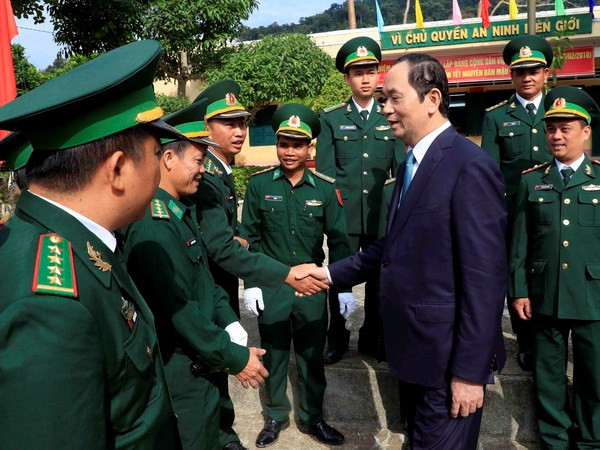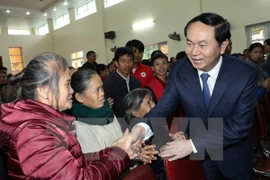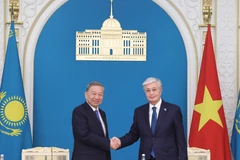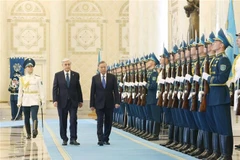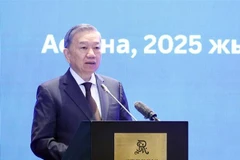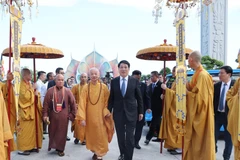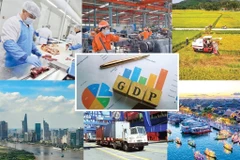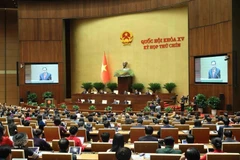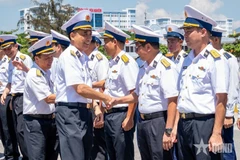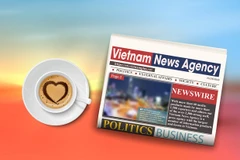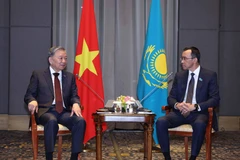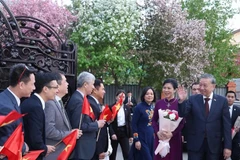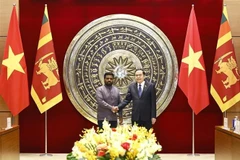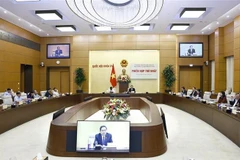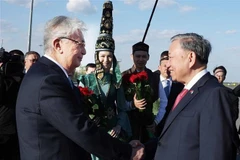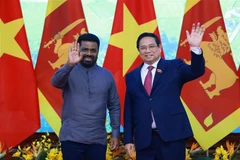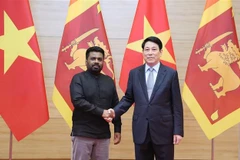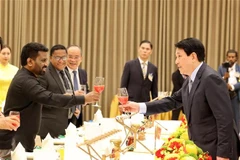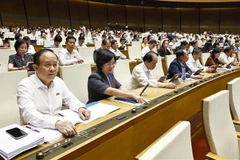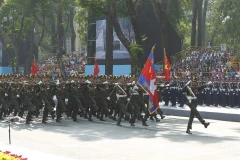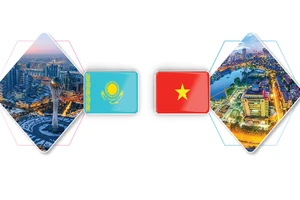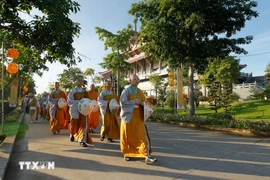Kon Tum (VNA)– President Tran Dai Quang extended Lunar New Year (Tet)greetings to people in Kon Tum during his working trip to the Central Highlandsprovince on February 2.
He visited and extended Tet greetings to officers and soldiers at the Ro KoiBorder Guard post under the provincial Border Guard Command in SaThay district.
The President hailed the post for giving adviceto the local authorities on political, socio-economic development, povertyreduction, social security, and natural disaster mitigation.
He urged the post to continue implementingeffectively the resolutions and directives of the Party, State and army onprotecting the national border, while actively fighting criminals and reactionariesto keep political security, social order and safety in border areas.
Ro Koi Border Guard post, with 50 officers andsoldiers, is responsible for managing 11.2 km of border neighbouring Ta Vengdistrict, Ratanakari province of Cambodia.
The unit has actively joined hands with theprovincial chapter of the Vietnam Fatherland Front, and the provincialBorder Guard Command to build 28 charity houses in 2016, worth 58million VND (2,300 USD).
On this occasion, President Quang visited andextended Tet greetings to local authorities and people in Ro Koi commune, SaThay province.
Ro Koi is a disadvantaged commune in thedistrict, with poor households accounting for nearly 40 percent of the totalpopulation.
The State leader also visited and presented Tetgifts to Vietnamese Heroic Mother Dang Thi Thu, residing in Duy Tan ward,Kon Tum city; and Most Venerable Thich Quang Xa, Vice Chairman of the ExecutiveCouncil of the Vietnam Buddhist Sangha (VBS) and head of the provincial VBS chapter.-VNA
